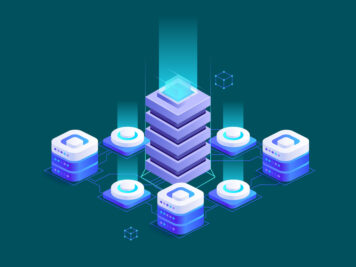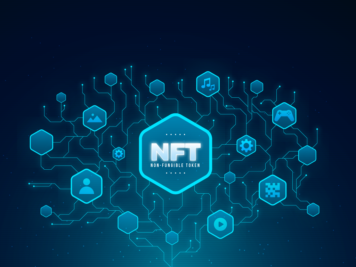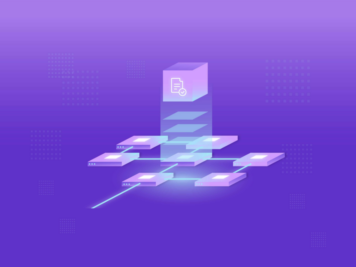Blockchain is still far away from realizing a fraction of what it can do and how it can transform sectors. However, its percolation across the industries has made it diverse. Talking about blockchain technology, which is a decentralized, distributed ledger that is used to record the provenance of a digital asset. The way it is designed, your data on the blockchain cannot be modified. Due to this quality, it is working as a great disruptor for industries such as payments, cybersecurity, healthcare, etc. where data immutability is required.
Let us check out some of the major blockchain technologies that you can use.
- Crypto:
Banks, in the US, and Europe, have started showing significant interest in cryptocurrencies as they are more economical and could cut down the operational costs by half. With blockchain, they could save around over $25 billion by 2030.
Cryptos are the digital assets that are created using computer networking software. It enables you to secure trading and ownership. One of the ways to create crypto currencies is through mining, Bitcoin is one of its examples. Some of the important cryptocurrencies are Ethereum, Binance Coin, XRP, Dogecoin, and Tether.
Major use cases of cryptos are:- Cryptos are currently being used as a substitute for fiat currencies.
- Decentralized finance applications can simplify loan approval processes and remove worries about platforms and locations.
- Cryptos can make buying and selling assets cost-effective, transparent, and quick through asset tokenization.
- Stablecoins like Tether and USD Coin can be used by traders to quickly move between cryptocurrencies on the cryptocurrency exchanges.
- NFTs:
Recently, distillers like William Grant and Son recently made headlines when they sold bottles of Glenfiddich whisky as NFTs. Clothing brands like Dolce & Gabbana and Nike, online games and the metaverse concept are also in line to explore NFT more.
From art and music to tacos and toilet paper, the NFTs are selling for millions of dollars like exotic things. They have been around since 2014, NFTs are recently seen to gain popularity in terms of buying and selling the artwork. They are generally one of a kind and have unique identifying codes. As it continues to gain popularity, you should check out some of its popular use cases:
- NFTs in real estate can drastically speed up buying property by replacing intermediaries with smart contracts.
- The use of smart contracts & oracles allows artists to create visuals that can further react to the price swings in blockchain-based assets.
- Musicians can use smart contracts technology to transfer their work copyrights to NFTs.
- NFTs in healthcare can be leveraged to store an individual’s medical records with NFT ledger. The NFT application can aid healthcare professionals in issuing birth certificates to the newborns.
- Smart Contracts:
Inmusik’s ability to use smart contracts to allocate revenues correctly is just a glimpse at what smart contracts can do with a transparent tagging system. Smart contracts can be defined as simple programs that are stored on a blockchain that run after meeting the predetermined conditions.
The main function of smart contracts is to automate the execution of an agreement without the involvement of an intermediary, thus saving time. They are also capable of automating a workflow and triggering the next actions after meeting the conditions. Check out some of the major use cases of smart contracts to understand its working better.
- Voting through smart contracts is extremely difficult to decode, which might inspire nations and organizations to increase its uptake.
- Insurance software development companies can leverage smart contracts to fast-track claim settlements.
- Smart contracts, when integrated with clinical trials, help with cross-institutional visibility, which can revolutionize the healthcare system.
- With smart contracts, trade finance can also be revolutionized. Leveraging smart contracts improves the liquidity of the financial assets, thus improving the suppliers, buyers, and institution’s financial efficiencies.
- DeFi Apps:
By DeFi, a Mexican lending firm called delt.ai, recently provided collateral free loans, which may inspire better growth for DeFi apps platforms DeFi’s ability to send and retrieve documents quickly could ensure its integration in a lot of sectors.
DeFi functions as an anonymous system that is responsible for completing the traditional financial transactions without involving any intermediary of governing body. It uses an application through blockchain technology which can be termed as DeFi protocol that directly connects the users. With its popularity rapidly expanding in 2020 and 2021, check out some of the major use cases of DeFi.
- Supply chain management could benefit from DeFi for operations like simple value transfer to complex financial use cases.
- In the DeFi ecosystem, borrowing & lending peer-to-peer is extensively used. It allows users to take loans without any application review or a bank account.
- DeFi allows asset management to be the only custodian of crypto assets and ensures transactions using crypto-wallets.
- The qualities of DeFi make it suitable for solving the current global payment system issues. It offers faster, safer, and transparent solutions as compared to the legacy systems. Thus, making the payments simpler and highly transparent.
- Asset Tokenization:
Russia’s declaration of Atomyze as the country’s first digital token issuer is one of the many instances that show how asset tokenization is getting adopted. In fact, companies like Goldman Sachs have also started to consider it as the future.
In simple terms, asset tokenization is a process through which an issuer can create digital tokens on a distributed ledger or blockchain. Once the tokens are bought, blockchain ensures that no single authority can either erase or change your ownership of your tokens. Check out some of the major use cases of asset tokenization to understand it better:
- Precious metal markets could benefit from fractionalization and lesser number of entry barriers. It could also empower smaller players.
- Real estate industry may adopt tokenization more to ease asset issuing, distribution, and transfer processes.
- Selling and renting assets that cannot be divided into smaller units or exchanged with a smaller item would become easier with asset tokenization.
- Tokenization allows access to the global community of small-check investors who are likely to invest in moderate risk to moderate return companies that have validate business models.
- Encryption:
With the massive amount of sensitive information generated, managed, and stored online in the cloud or on connected servers, the need to protect this information is crucial. Encryption utilizes cybersecurity to protect against any brute-force and cyber-attacks that can include malware and ransomware. Data encryption secures the transmitted digital data on the cloud and computer systems.
Blockchain’s ledger system makes data secure. In fact, developers can use this technology to produce a standard security protocol, which can inspire industries to increase their blockchain uptake. To understand how blockchain ledger is securing the data with encryption, check out the top uses cases of encryption given below:
- Blockchain could provide better protection to databases by supporting multi-tenancy, satisfying contractual obligations, and complying with state privacy laws.
- In cloud computing, encryption plays a crucial role in limiting access of data to acknowledged users only.
- Format pressuring encryption and masking allows the removal of sensitive payment data and increases security.
- In case of payments, the focus is on removing the payment data to avoid the data breach threat. Thus, making way for tokenization, format-preserving encryption, and masking to remove sensitive payment data with the need for security and compliance.
Final Thoughts
With blockchain’s ability to deliver the information because of its immediate, shared, and completely transparent immutable ledger system, businesses can make quick decisions with such information.
After knowing in detail about the different blockchain technologies and practical uses cases of blockchain, you can make a more informed decision about blockchain implementation and understand the ways in which it can influence your business.









